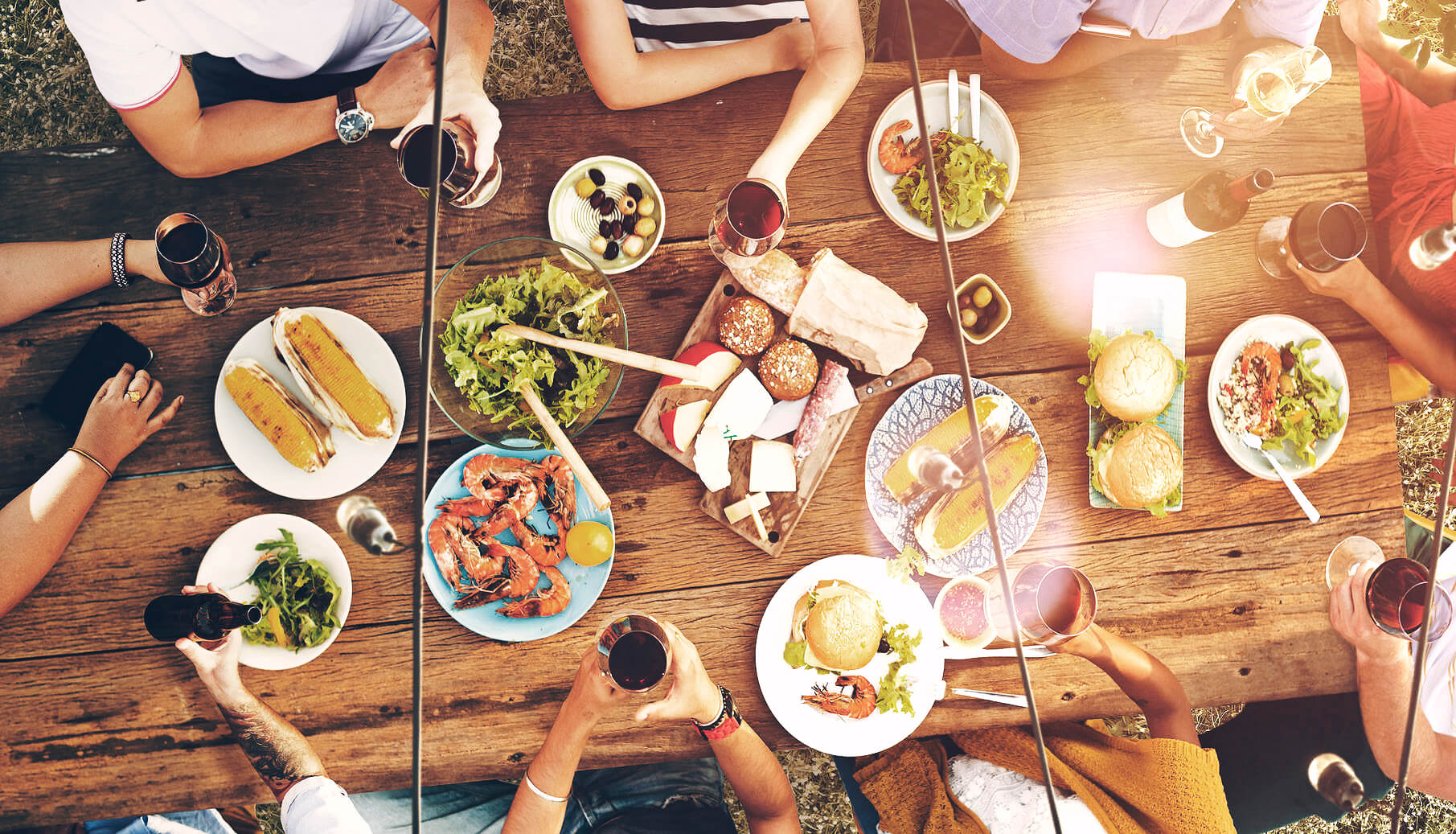You’re sat at a restaurant, and panic sets in.
You didn’t know you were heading out to eat tonight, but your buddies invitedyou last minute, and you felt obligated to accept.
You’re torn – do you sit there, order a Diet Coke, and eat nothing, then make sure that you hit your planned macros for the day when you get home, or do you gorge yourself stupid.
After all, there’s no way you can possibly track macros while out.
You don’t know how the chef’s going to cook the steak or chicken breast, how much oil will be used, and whether it’ll be low-fat cheese or the regular stuff.
Add to that the fact salad dressings are usually loaded with sugar, and it’s just all one big stress.
When you’re flexible dieting, eating out is best avoided at all costs.
Or is it?
Stop Being So Inflexible
You’re a flexible dieter.
You took to tracking macros and measuring quantifiable data so you didn’t have to continue your ways of clean eating, rigid meal plans, and weekend binges.
The beauty of flexible dieting is that you CAN go out to eat at restaurants, have meals at family members’ houses, and eat a little of what you like every single day.
So stressing over the precise macros on a menu really defeats the point of flexible dieting and IIFYM.
You may as well go back to your six meals per day of tuna, rice and broccoli.
Find Your Level
Working out how “strict” you need to be tracking macros when eating out all comes down to your goals.
Put yourself in one of these 4 categories –
Level 1 – You’re lean bulking or a couple of months or more into a reverse diet.
Provided you’re not eating out every day of the week, a “free meal” here and there is fine, just don’t binge eat.
Level 2 – You’re in a maintenance phase.
Try to roughly track the macros, but don’t stress over it too much.
If you’d rather not worry over that, then just pick something that more or less works in with your daily calorie allowance.
Level 3 – You’re in a general fat loss phase.
Go to places where you can find accurate macros online, or ask family members what’s in their meals if you’re at someone’s house. Doing this once or twice a week shouldn’t be an issue.
Level 4 – You’re prepping for a show or photo shoot, and in the last 6 to 8 weeks of your diet.
Don’t be afraid of eating out, but don’t make it a regular occurrence either.
Track as closely as possible, and pick simple menu options.
(Bonus) Level 5 – You’re less than 3 weeks out from a show or shoot.
In this instance, you probably shouldn’t be eating out at all. You need to control as many variables as possible.
8 Tracking Tips, Tricks and Hints
Once you have your level, look for ways you can make eating at restaurants fit your plan.
1. Search for Nutrition Data Online
Most chain restaurants now put nutritional information on their websites for customers to see. They might not have precise macros, but they’ll at least have calories and fat.
2. Pre-Pick Your Food
Take a look at the menu and nutritional information a day or two before you head out. You’re much less likely to make a snap on-the- spot decision and pick something that doesn’t fit your plan this way.
In fact, if you’ve made up your mind beforehand, don’t even look at the menus when they come round. That way you won’t be swayed.
3. Go Low-Carb
If you know you’ll be eating out, but have no idea where you’re going, it’s a good idea to eat fewer carbohydrates and fats during the day.
You don’t need do anything crazy like go zero carb, zero fat, and just eat plain tilapia all day, but be sensible – leave 30 to 50% of your carbs and fat until your meal, depending on your total daily macros.
4. Make Requests
Heard that phrase – “The customer is always right?”
That’s perfectly true in restaurants.
If you want to know how something’s cooked, or request dressing on the side, no oil, vegetables instead of fries, and so on, don’t be afraid to ask.
5. Keep it Simple
If you can’t get access to any macros, and your My Fitness Pal or MyMacros+ is drawing a blank, then opt for a simple dish.
It’s much easier to estimate the macros in a piece of steak or chicken served with a baked potato and side salad than it is to try and guess the contents of a pasta dish or a calzone.
6. Make it a Re-Feed
Worried you’re going to go crazy on carbs? Then have meals out on your re-feed days when you have a little more leeway.
7. Choose Food OR Alcohol
Calories easily add up pretty damn fast when you include alcohol in your meals out (not to mention impacting on protein synthesis) so make the decision – is it a meal out OR drinks out?
8. Eat What You Enjoy
Eating out should be fun, but don’t eat foods just because they’re there.
Do you REALLY need the bread that’s put on the table while you’re ordering?
If you planned to have a medium sweet potato, and the one on your plate is a real monster, there’s no reason you have to eat it all.
Stop Screwing Up Flexible Dieting
If you constantly stress and worry over eating out and make excuses to avoid social situations because you’re scared about hitting your macros perfectly, you’re not embracing the concept of flexible dieting.
Sure, there are scenarios when you probably shouldn’t eat out (i.e. level 4 and 5 dieters) but aside from that, going to restaurants for good food and good fun with friends and family is part of what life’s all about.
For 99% of people, 99% of the time, a meal out every now and then using the tips above won’t harm your progress in the slightest.

